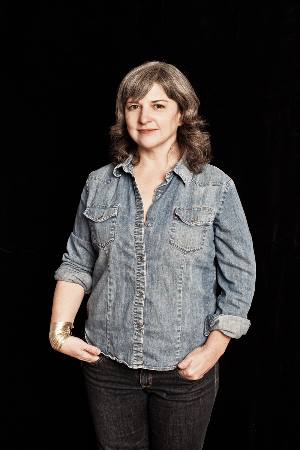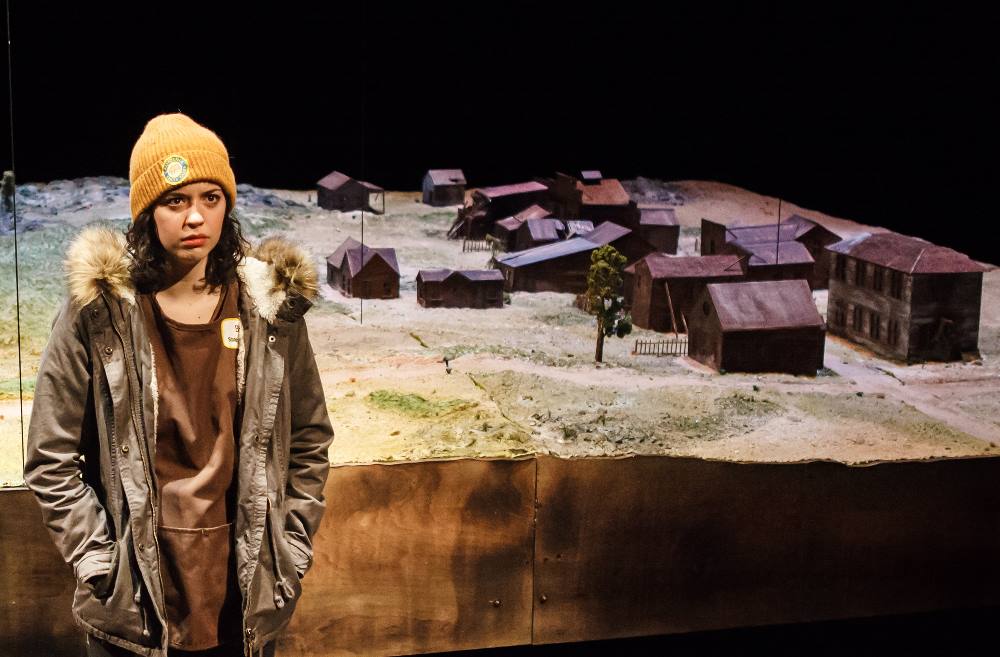The 39th annual Humana Festival of New American Plays, hosted by Actors Theatre of Louisville, began on March 4 is running through April 12, with five fully produced world-premiere plays and a series of 10-minute plays. For those who have never attended, it’s a bit like the Sundance Film Festival for theatre, only with better bourbon.
As part of our special Humana coverage this year, we’re interviewing the playwrights of Humana 2015 while their plays are running there. First up is Erin Courtney.
LOUISVILLE, KY.: Erin Courtney believes in ghosts, even though she’s never seen one. “I’ve felt a presence before,” she explains. “I’ve had different very close friends pass away, and I’ve literally felt their presence in a way that’s not just a memory.”
Hauntings are the subject of her play I Will Be Gone, at Humana March 13–April 12 under Kip Fagan’s direction. The play follows 17-year-old Penelope, who moves in with her aunt after the death of her mother. Her new town happens to be next to a ghost town called Bodie (note the last three letters).
Though Courtney’s previous play, the Obie-winning A Map of Virtue (produced in 2012 by the 13P collective) was a horror tale set in the woods (with a bird attack for added tension), she promises that I Will Be Gone is a departure: It’s at least partly intended as a comedy, she says.
This is Courtney’s first full-length play to be presented at Humana; her short play Owls played there in 2001. Below, Courtney explains the process of combining ghosts, grief and laughs.

What was the inspiration for I Will Be Gone?
I grew up in California. Actually, none of my plays are set in California—this is the first one that’s ever been set in California. We used to go to vacation in a place called Mammoth Lake, which is in the Sierra Nevadas. There’s a ghost town there called Bodie. It’s an amazing ghost town from the Gold Rush era. It only had 15 years of being this giant town, and all the gold dried up and everybody left. So now it’s just these sort of carcasses of buildings that have been abandoned.
It’s as though everybody just disappeared—they left pencils on the desks at the schoolhouse, there’s beer bottles on the bar at the saloon and you’re not allowed into the buildings. You can only peer in through the windows, so it’s like a voyeuristic look into the past, an abandoned past. I used to love to go there. So that has been in my mind for many years.
And then I was interested in writing a play about grief and grieving and how people change when someone that they love dies, to chart what happens to some people when they lose a very important person and how it’s hard to look grief in the face. So we often attempt other modes of dealing with the pain and that that doesn’t actually help us.
What was it about the real-life Bodie that made you decide to incorporate it into your play?
The state law of California says that the ghost town must be kept in a state of arrested decay, which means they’re not allowed to fix it up, they’re not allowed to put new roofs on and repave the roads. So if a structure is about to fall over, they put a wooden slab or pole next to it to hold it up.
So I thought, if you are grieving or suffering a loss and you’re not able to get through it, if you’re trying to stay the same, if you’re trying to not change, you get stuck in a state of arrested decay. So I like the idea of this town as a visual mirror or parallel to people who are not ready to move on yet; they don’t want to let go of the past.
The town in the play that’s next to Bodie—is it a real town, too?
The town in my play is fictional, but when I went to visit Bodie recently to do some research, there is a really groovy, tiny small town near Bodie and it’s called Lee Vining. It’s really tiny! I think there’s only 200 people. And it’s interestingly creative and artistic. Which is my town—it’s full of these very artistic and creative people. It turns out that my fictional town does have a counterpart.
Was the grief in the play based on any personal experiences?
I have lost a lot of very, very close friends who died young, and some who died older. But every time it’s had had an impact on me that’s really surprising in its amount of pain and sort of waves of feeling very outside of my culture. In American culture, we don’t have great rituals to help people through the process of grief. Hence there are a lot of awkward interactions that occur.
Also, if you’re a secular or non-religious person, there’s not a lot of ritual for grieving. So I think the personal impetus is how you feel changed as a person and how hard it is to be in the world when you don’t have a way to mark that change. Also, I hope that people who come see the play, if they’ve lost someone, that it’s a space to kind of be meditative to what it means to them as they process their grief.
But it’s also a comedy, because that’s the one thing that we’re good at, all humans. When we’re facing something that is unknowable and gigantic and beyond our capacity to understand, we use humor to help us. So there’s a lot of comedy in the play.
I noticed that. I also loved the stage directions. There’s one in particular, when Josephine leaves a cupcake on her sister’s grave: “The pink cupcake waits to be eaten by the spirits.”
[laughs] Right. So there’s the life of objects. Objects definitely have their own life in this play. When you ask about the ghost town and why I’m drawn to it, it’s the idea that these objects remain when the people are gone—the objects are continuing to live in these homes.
Do you have altars or put food on graves? What have been your death rituals?
I have never left food out, but I have little areas of my house with pictures of my loved ones. It’s very meaningful to me, but no actual shrines. Maybe just the writing of plays, that’s my ritual.
And they’re objects that will be alive long after we all pass.
Hopefully!
For anyone going to Humana this year, can you recommend a restaurant?
Oh! Well, I actually really love MilkWood. It’s in the basement of the theatre. It’s got really unique flavors. I had an octopus, a peppered octopus; it was like an appetizer that has these little pieces of octopus and a kind of mossy flavor—a flavor I’ve never encountered before. It was so delicious!





